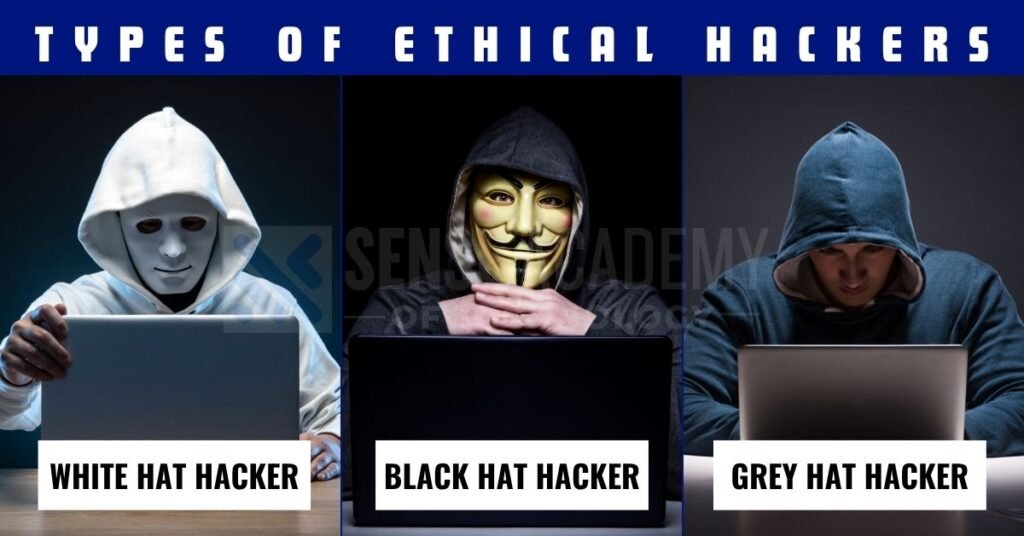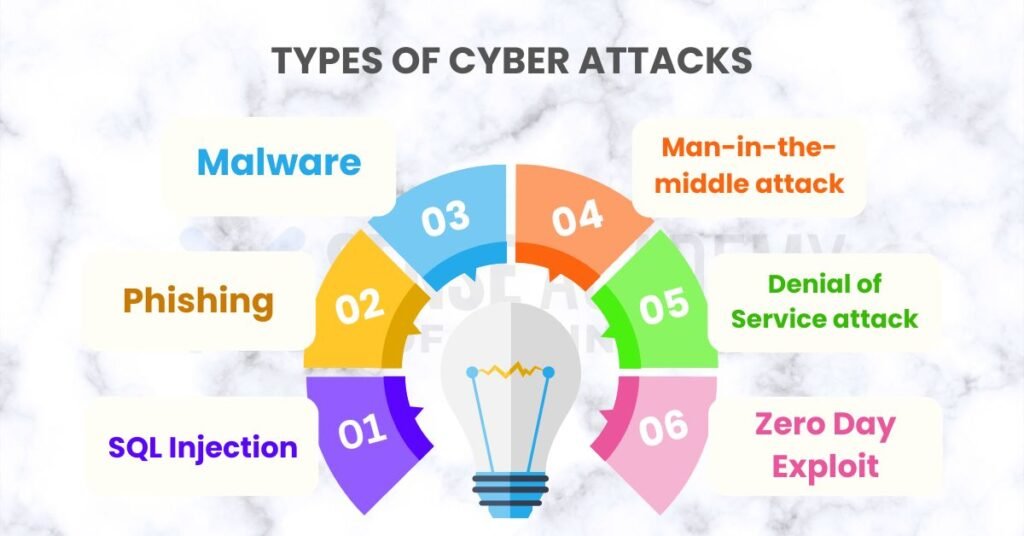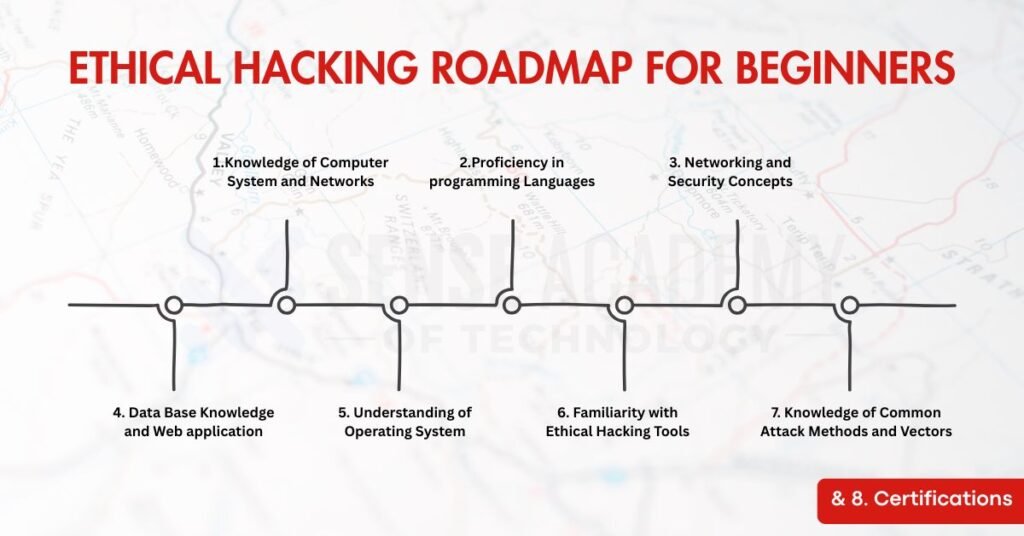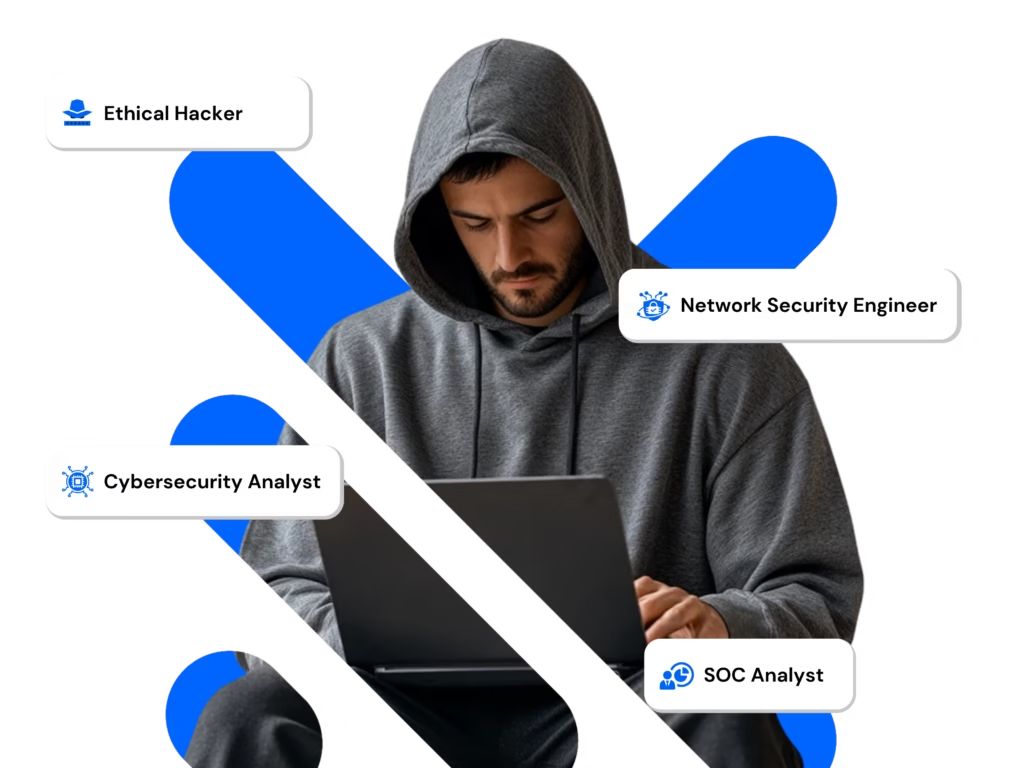Do puzzles excite you? Do you find it interesting to learn about how things operate, particularly technology and computer systems? If any of these questions apply to you, then you might be interested in pursuing a career in Ethical Hacking.
Identifying and finding weaknesses in computer networks and systems is the main goal of ethical hacking. Some ethical hackers assist small businesses with penetration testing and quality assurance. Some hack banks, government agencies, and other highly secure businesses. Other than that, ethical hackers work for very large companies.
Table of Contents
What is Ethical Hacking?
Ethical hacking is the practice of testing the security of a computer system or network using hacking techniques. In order to identify security flaws that malicious hackers might take advantage of, ethical hackers look for ways to access a system. Penetration, white hat, and security testing are other names for ethical hacking.
Ethical hackers don’t try to access networks or data without authorisation, in contrast to malicious hackers. Instead, by identifying and addressing possible security threats, they seek to assist organisations in enhancing security.
Any computer system, from small networks to massive enterprise systems, can have its security tested through ethical hacking to identify security flaws. Ethical hackers employ a variety of instruments and methods, such as database assaults, web application attacks.
Role of Ethical Hacker
Prior to learning how to become an ethical hacker in India, it is essential to understand who they are. White hat hackers, can be another name for ethical hackers; they use their hacking expertise to identify security flaws in networks and computer systems. After that, they work alongside the owners of the systems to identify solutions to address the vulnerabilities before malicious hackers may take advantage of them.
What do they do, then? A large number of ethical hackers serve as consultants, offering their knowledge to businesses that need to strengthen their cybersecurity. Other ethical hackers are employed by the private sector or by governmental organizations. With consent from the system owners they are testing, ethical hackers employ the same techniques and resources as malicious hackers.
By identifying and addressing vulnerabilities before they may be exploited, ethical hacking seeks to assist businesses in enhancing security. They might also be employed to perform social engineering tests, which evaluate an organization’s defenses against human interaction-based attacks like phishing. You can also check senseacademy for more course details.
Types of Ethical Hackers
A hacker uses computer, networking, or other skills to fix a technological problem. A hacker is any individual who uses their expertise to obtain access to a system or network in order to break the law.

1. White Hat Hacker
White hat hackers, also known as ethical hackers, are cybersecurity professionals who help companies and the government by finding weaknesses in security and conducting penetration tests. To defend themselves from black hat hackers and other cybercriminals, ethical hackers employ a variety of strategies. They attack our system with the goal of identifying weaknesses and helping you get rid of malware and viruses.
5-stages-of-a-data-breach-and-how-to-stop-each-one
2. Black Hat Hacker
Money is the primary motive behind cybercrime, which is the goal of a black hat hacker. These hackers search for vulnerabilities in individual computers used by banks and other corporations. By taking advantage of vulnerabilities, they can breach the network and obtain financial, business, and personal information.
3. Grey Hat Hacker
Between black hat and white hat hackers are grey hat hackers. Their motives can be both good and harmful, although they might not exploit their skills for personal benefit.
A hacker who gains access to an organization and discovers a weakness, for instance, could disclose it to the organization or leak it online. When hackers utilize their hacking abilities for their own benefit, they turn into black hat hackers. If you want to know more about certification provided by eccouncil.org/train-certify you can check this website. It’s a Govt. official website.
Types of Cyber Attacks
Below are few types of cyberattacks.

Malware
Malware is the term for harmful software, which includes viruses, worms, ransomware, and spyware. When an end user clicks on a malicious link or email attachment that installs harmful software, a network vulnerability is exploited.
- Malware performs the following once it’s inside the system:
- prevents access to key network components.
- secretly collects information by sending information from the hard drive.
- It installs malicious software or malware. By causing specific components to malfunction, making the system unusable.
Phishing
Phishing is the practice of sending fraudulent messages, primarily by email, that seem to be from a reliable source. This is done to either install malware on the victim’s computer or steal private data, such as login credentials and credit card numbers. An increasingly common cyberthreat is phishing.
SQL Injection
Here, a hacker uses SQL to introduce malicious code into a server, forcing it to share data it usually wouldn’t. This attack is carried out by inserting malicious code into the search field of a website that is vulnerable.
Man-in-the-middle attack
This attack is also known as a man-in-the-middle (MitM) attack. It happens when hackers enter a two-party transaction. The attackers filter and steal data after disrupting the flow.
There are two typical points of entry for MitM attacks:
- On unprotected public Wi-Fi, hackers place themselves in between users’ devices and networks. The user unknowingly gives the hacker access to all of their data.
- An attacker installs software to process the victim’s data once malware hijacks a PC.
Denial-of-service attack
This type of attack overloads servers, networks, or systems with traffic, depleting bandwidth and resources and preventing the system from responding to valid requests. This type of attack, called a distributed denial-of-service (DDoS) attack, is also launched by the attackers using a number of hacked devices
Zero-Day Exploit
Prior to the announcement of a network vulnerability and the implementation of a solution, a zero-day exploit attack occurs. It is during this period that attackers target the stated vulnerability. The discovery of this vulnerability threat requires ongoing attentiveness.
7-top-most-common-types-of-cyberattack/
Ethical Hacking Roadmap for Beginners
Learn how to be an ethical hacker in India.

1. Knowledge of Computer System and Networks
Understand how operating systems, network protocols, and computer systems work, as well as how different parts work together in a networked context.
2. Proficiency in programming Languages
Expertise of Ethical Hacking Tools
- Learn how to use well-known ethical hacking tools such as:
- Wireshark, Nmap, Burp Suite, and Metasploit
- Kapiti Kali Canavas, SQL Ninja
3. Networking and Security Concepts
Learn about the various security protocols, network security, and computer networking concepts. Recognize the methods used to transmit, secure, and protect data in a networked setting.
4. Database Knowledge and Web application
Get familiar with database systems, protocols, and web application architectures. Discover typical web application-specific vulnerabilities like XSS (cross-site scripting) and SQL injection, creating requests across sites (CSRF).
what-is-docker-and-how-does-it-work
5. Understanding of Operating System
Become proficient with several operating systems, such as Linux, macOS, or Windows. This means being aware of the operating system-specific security features, permissions, and system settings.
6. Familiarity with Ethical Hacking Tools
- Expertise of Ethical Hacking Tools, Learn how to use well-known ethical hacking tools such as:
- Wireshark, Nmap, Burp Suite, and Metasploit
- Kapiti Kali Canavas, SQL Ninja
7. Knowledge of Common Attack Methods and Vectors
Understand the several hacking methods and attack vectors that malicious hackers employ, including network-based attacks, social engineering, phishing, and password cracking. This information aids in foreseeing and averting possible dangers.
8. Certifications
Your learning path will be greatly enhanced by your certifications and talents. Certifications also show how well you know hacking methods. You can also take training as well as certifications from senseacademy
role-of-artificial-intelligence-in-cybersecurity
Qualifications to Work as an Ethical Hacker
The following are the prerequisites for becoming an ethical hacker:
Educational Qualification
- Students must graduate from an accredited board with a 10+2 diploma or its equivalent.
- In their 10+2, they need to receive a minimum total score of 50%.
- To be admitted, candidates must additionally take the relevant entrance exam and meet the cut off.
Required Skills
The following are the primary skills required to work as an ethical hacker:
- Analysis of programming security
- Ability for research
- Systemization
- Effective problem-solving skills
- Analytical and critical thinking
- Observational Skills
- Flexible and spontaneous
FAQ’s
Can I learn Ethical Hacking Online ?
Yes, definitely various platforms like SenseAcademy provide both online and offline classes. You can also view videos, sign up for tutorials, or enroll in an online ethical hacking course or training program.
Does becoming an ethical hacker require programming knowledge?
Yes, ethical hacking employs Python for automation, scripting, and penetration testing, you do need to know the basics of programming. The best thing is that our ethical hacking course covers the basics of programming, making it accessible to beginners and students without any technical experience.
Which industries use ethical hackers?
To secure their systems, sectors including banking, IT, healthcare, government, defense, and finance use knowledgeable, ethical hackers.
How crucial is networking expertise for ethical hacking?
Networking skills are essential for ethical hackers. It helps with your comprehension of the TCP/IP, DNS, and DHCP protocols that are necessary for spotting vulnerabilities.
Conclusion
In summary, ethical hacking is an essential skill in today’s cybersecurity environment that enables experts to defend networks, systems, and data from possible intrusions. A strong foundation in computer systems, networking, and operating systems is necessary to become a good ethical hacker. Your capacity to spot vulnerabilities is further enhanced by learning databases and online applications and becoming proficient in programming languages. Knowledge of common attack vectors and proficiency with ethical hacking tools make proactive defensive strategies possible. Certification and ongoing education, such as CEH or CompTIA Security+, authenticate your knowledge and lead to new job chances. Protecting digital ecosystems is a critical function of ethical hackers, which makes their work both demanding and fulfilling. Anyone with the appropriate plan, commitment, and abilities can enter this exciting field and help create a safer online environment.





